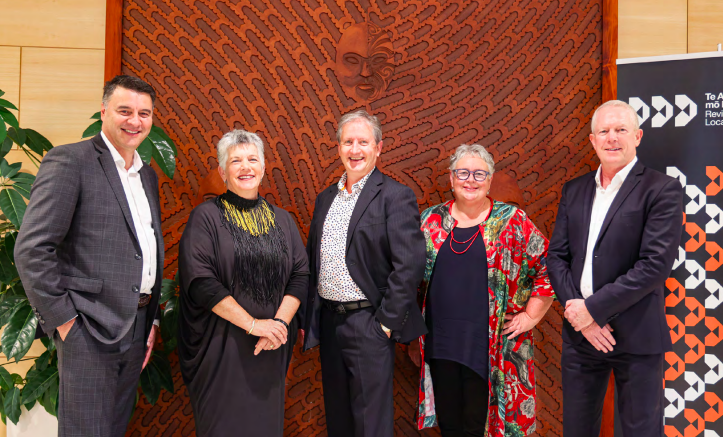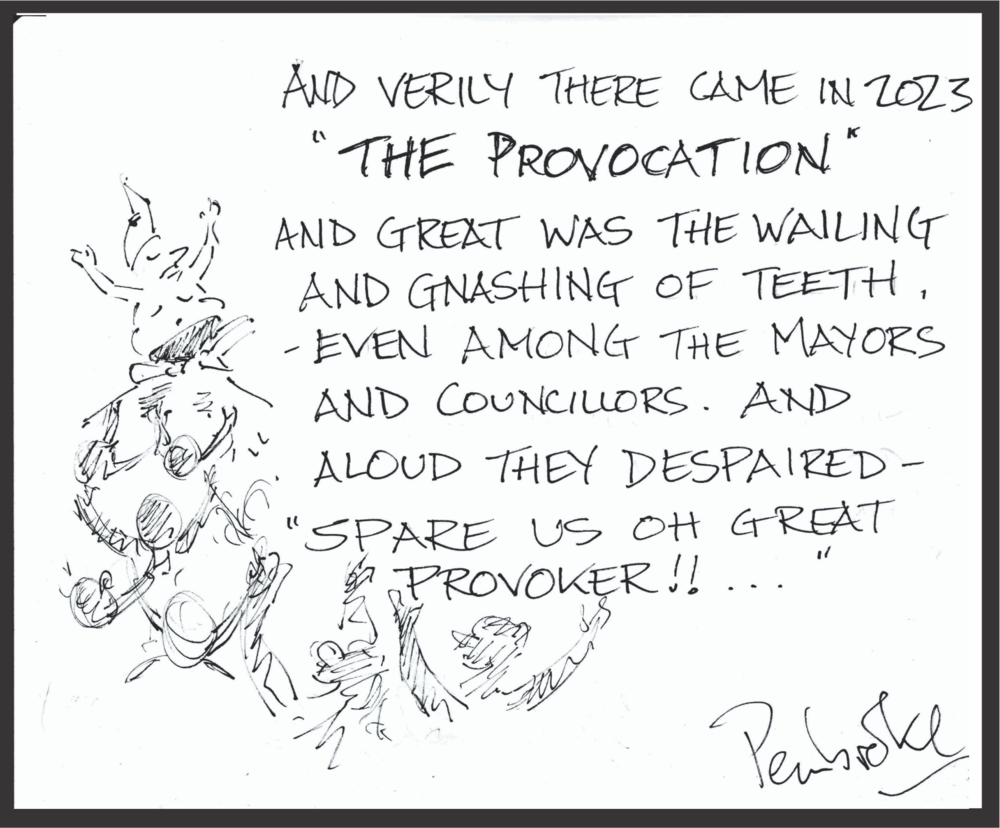Local government needs radical overhaul, report finds
Maddy Harker
21 June 2023, 1:07 AM
 QLDC councillors (from left): Matthew Wong, Quentin Smith, Niki Gladding, Lisa Guy, Cody Tucker, Mayor Glyn Lewers, Craig (Ferg) Ferguson, Esther Whitehead, Neeta Shetty (resigned), Gavin Bartlett, Lyal Cocks, and Barry Bruce.
QLDC councillors (from left): Matthew Wong, Quentin Smith, Niki Gladding, Lisa Guy, Cody Tucker, Mayor Glyn Lewers, Craig (Ferg) Ferguson, Esther Whitehead, Neeta Shetty (resigned), Gavin Bartlett, Lyal Cocks, and Barry Bruce.The most significant review of local government since 1989 has concluded that a radical overhaul is needed.
This morning (Wednesday June 21) the panel for the review into the Future for Local Government released its final report, which lists 17 key recommendations for councils to deliver better outcomes for local communities.
The report recommends four-year electoral terms; lowering the voting age for local elections to 16; ‘significant funding’ be provided to local councils from central government; a possible amalgamation of councils; and steps to grow Te-Tiriti based partnerships.
It’s already been praised by Local Government New Zealand (LGNZ) which says it takes a “common-sense approach”, especially to funding, system sustainability and other challenges facing councils.
The report says the current local government system “is not set up for future success”.
“The series of compounding crises we are experiencing are unlikely to abate – climate change, the ongoing fallout from Covid-19, disruptive technological advances, and the economic and geopolitical impacts of global conflict.”

Future for Local Government Review panel: Jim Palmer (chair) Penny Hulse, Antoine Coffin Gael Surgenor and Brendan Boyle.
Extreme weather events, persistent inequity, and low social cohesion are already affecting communities here, the report says, and “all of these challenges are felt at place and will only intensify over the next 30 years”.
Decisions by successive governments have marginalised local government and left it in a precarious position in terms of focus, resourcing, and viability, it says.
“Advancing the recommendations is critical to making sure local government can deliver the services and infrastructure needed for healthy, thriving and resilient communities for years to come,” panel chair Jim Palmer said.
“This will require strong commitment from both local and central government to re-examine how our institutions work together.”
The final report comes two years after the government announced an independent review of local government to identify how New Zealand’s system of local democracy and governance needs to evolve over the next 30 years to improve the wellbeing of New Zealand communities, the environment, and embody Te Tiriti.
Jim Palmer said the panel has spent the last two years listening to local councils, central government, iwi leaders, community and business representatives, rural communities, minority and interest groups, and the public, to identify what they want, need and expect from their local government system.
The final report builds on two previous reports from the panel - Ārewa ake te Kaupapa, an interim report from September 2021, and He mata whāriki, he matawhānui, a draft report from October 2022.
The draft report, which the panel called “a provocation that also asks questions and hopefully prompts further vigorous debate, that will help us shape our final report”, included some of the same recommendations that have made it to the final report.

Queenstown Lakes District Council (QLDC) media and channels advisor Sam White told the Wānaka App the council was unlikely to give an immediate statement on the report.
However, the council’s submission on the draft report from February - in which the council advocates for new funding models, a “truly collaborative” partnership between local and central government and Iwi/ Hapū/ Māori, and addressing “rigidity” in the existing bureaucratic system that drives local government activities and reporting - shares some themes with the final report.
“We will take time to review the report and discuss it with elected members before sharing our position on its conclusions,” QLDC said.
Read the full Future for Local Government (He piki tūranga, he piki kōtuku) final report here.
Read more: Future for Local Government review: What you need to know
PHOTOS: Supplied




